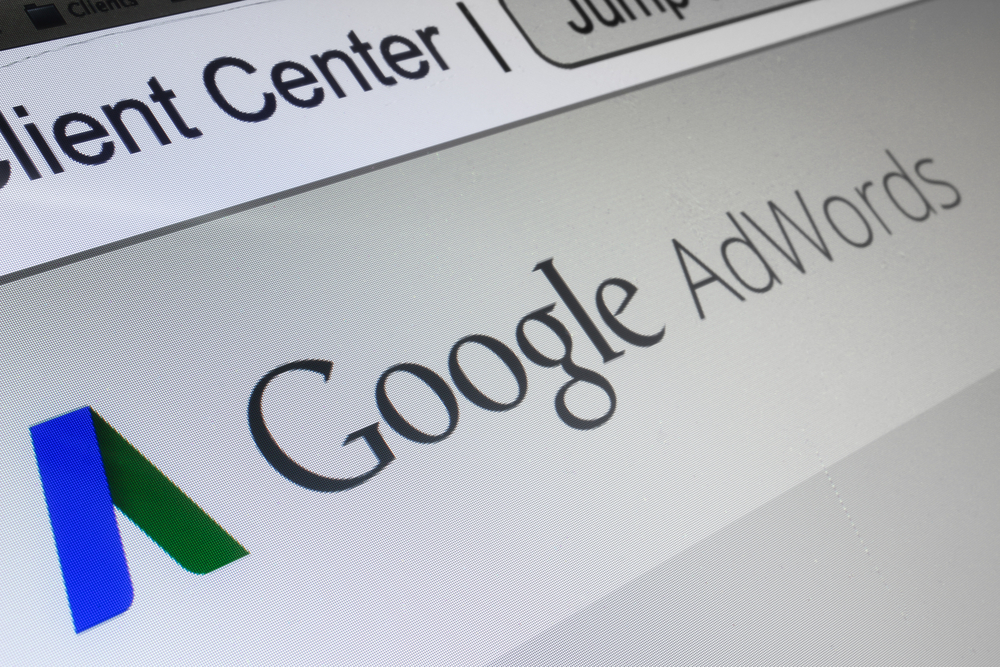
11 Jul Online Marketing for Attorneys: Google AdWords
Google AdWords is a paid search service on Google that advertises your business on their search engine pages. Many businesses take advantage of AdWords, because it’s a great way to drive more traffic to your website and make your business seen amongst all the clutter and competition. While SEO (Search Engine Optimization) is a key tactic to use when increasing your visibility online, on-page optimization isn’t the only method you can use to boost your business, and AdWords is a great tool to take advantage of.
When customers look up relevant keywords to your business, such as “attorneys” or “lawyers”, they will see your business pop up on the front page of Google because of your paid ad placement (depending on your bid and quality score, which we will get to later). Therefore, if you use Google AdWords, your business can create ads that target your target audience by using keywords that they would most likely search. Create a strong list of keywords that consist of common words, terms, or phrases that your potential customers would search for when looking for your services. If you need help coming up with valuable keywords, there’s a feature on AdWords called Keyword Tool that shows you ideas of popular or related keywords and each of their costs. Also, depending on your professional practice and your preference, you can choose whether to create general keywords or ones that are more specific. This could depend on if your target demographic would search for very specific services that you would offer or vice versa. In addition, if you as a business only operate in a specific geographic location or smaller area, it would benefit you greatly to narrow down the keyword searches to your local area or surrounding areas. This way, you can also decrease your level of spending on clicks from people in areas that are farther from you who won’t be realistic customers. Once you set your keywords, you can use the traffic estimator tool to calculate your budget and CPC (cost per click).
When it comes to the cost of ads on Google AdWords, it comes down to which companies in similar business areas bid the most money and have the highest quality score (which shows how relevant your ad would be to the online user). Quality scores are extremely important in AdWords and are dependent on the relevance of your keywords to each ad group, your CTR (click through rate), how relevant and valuable your landing page is, and more. Say that you as an attorney want a top paid spot on AdWords. To get the highest ad rank among your competitors, you would need to have the highest rank number, which is determined by your max bid (specified for a keyword) multiplied by your quality score. To calculate your CPC from online users, Google determines the ad rank of the business right below you, divided by your quality score, + $0.01. The higher quality score you have, the better, because you will have a higher ranking and lower cost per click. Also, increasing your CPC will decrease the number of clicks you get later on, particularly if you have a budget. To optimize your reach from AdWords, you can modify the max CPC or your daily budget accordingly. According to Google, businesses who use AdWords that optimize their budget, CPC, and more on average make $2 for every $1 they spend.
After you’ve established keywords, set a budget, and figured out how your business will be using AdWords, an important next step to take is to monitor your AdWords campaign and measure results. You can go into the analytics of the campaign and evaluate which keywords are bringing in the most traffic (getting the most bang for your buck), and which ones aren’t worth your AdWords budget according to bids.
While Google AdWords is a great tool you can use to publish paid ads for your business online, it’s important to make sure online users are pleased when they actually click on your paid ad. In the working world, there’s a lot of competition to stand out amongst many big competitors, especially for smaller-scale attorneys. This is why creating a custom website that represents your brand is a strong tactic you should use to break through the clutter of similar businesses trying to sell the same thing as you. Establishing your own voice and “look” will make customers remember you and demonstrate your individuality. The design and navigability of your website is important when trying to stay ahead of your competition, especially if you employ up-to-date techniques and tools on your website. With a user-friendly interface comes more results and traffic on your site organically, because those who can easily find information on your site are more likely to go to the next step of contacting you. A navigable website yields more customers, which increases your profitability. Therefore, customers are not only more likely to find you through a paid ad, but then they will actually stay on your site if you provide them with relevant information, optimize your design, and establish your voice/individuality
Overall, AdWords is a strong tool to use as an attorney to attract new visitors to your website, bring in more clients and business, and reach more people than you ever thought possible. It allows for your online marketing to be measurable and gives you insight into what works best for you and what you can alter. Google AdWords can help you expand and market your business in a way that is relevant and specifically targeted to the customers you want to reach.




Sorry, the comment form is closed at this time.